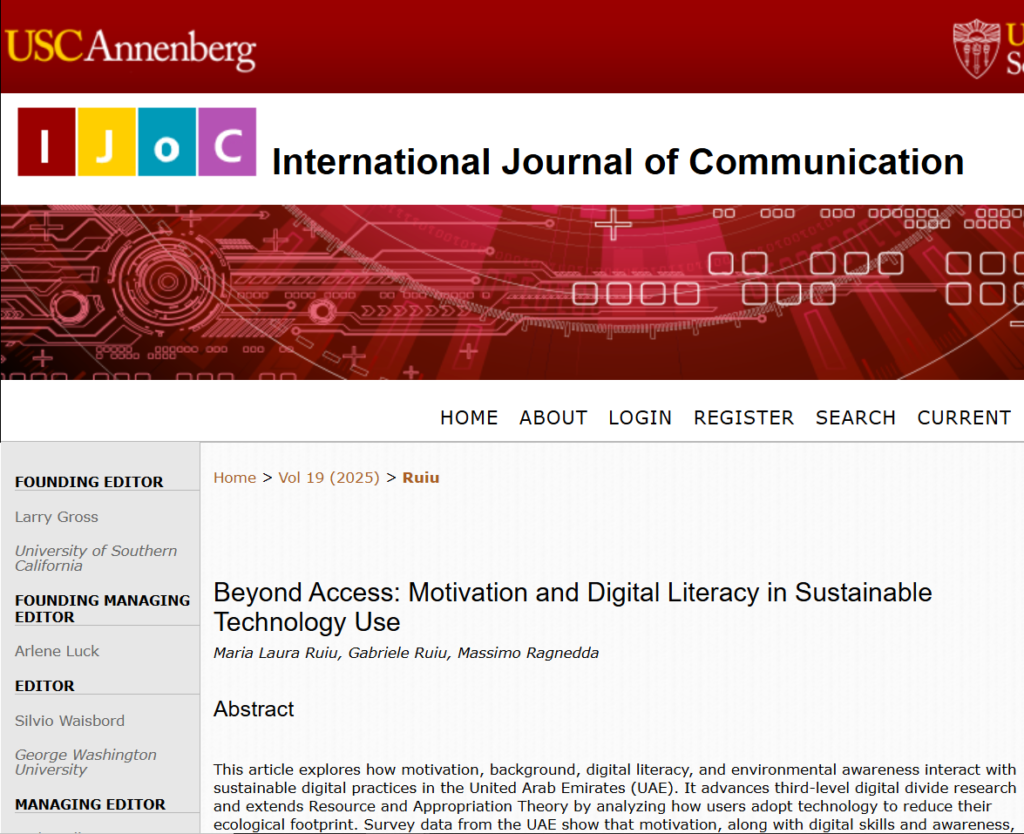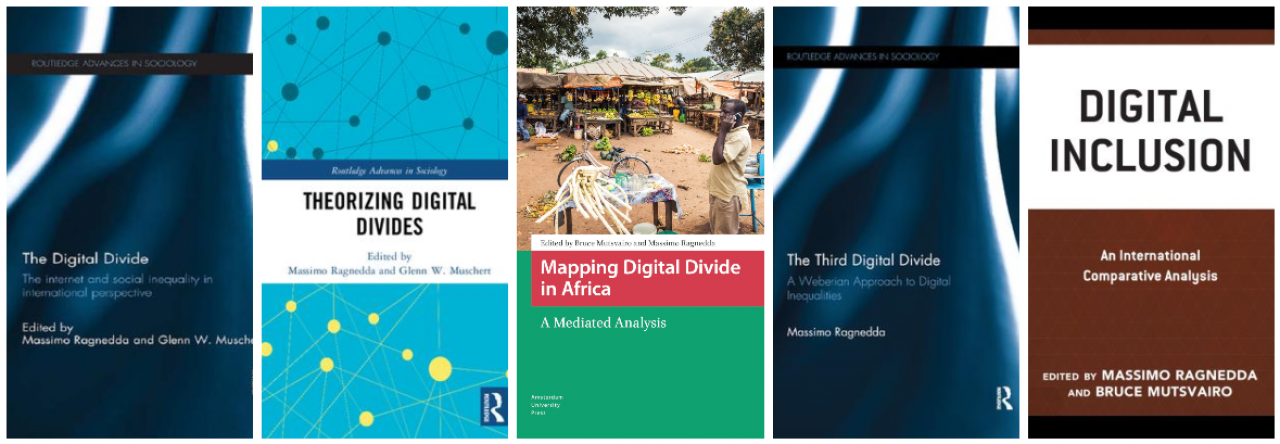
What does it take to make digital technology truly sustainable?
Our latest open-access article, just published in the International Journal of Communication, addresses this urgent question. Co-authored with Maria Laura Ruiu and Gabriele Ruiu, this study examines how digital motivation, skills, and environmental awareness shape sustainable technology use in one of the world’s most digitally connected societies: the United Arab Emirates.Access the full article: Beyond Access: Motivation and Digital Literacy in Sustainable Technology Use (IJOC, 2025)
Why This Study Matters
Much of the global debate around the digital divide still focuses on access to technology. But access alone doesn’t guarantee responsible or environmentally conscious use. Our research explores what happens after access — what people do with technology, and what drives them to use it for the common good.
The study contributes to third-level digital divide research by integrating an environmental dimension, arguing that the ability to use digital tools sustainably is shaped not only by skills or infrastructure, but by internal motivation and social context.
Key Findings at a Glance
🔹 Motivation is the strongest predictor of sustainable digital behavior. Users who feel a personal responsibility to act sustainably are far more likely to engage in eco-conscious digital practices.
🔹 Digital literacy matters — but only when paired with motivation and awareness of technology’s environmental impacts.
🔹 Vocational training outperforms university education in predicting environmentally responsible digital behavior, especially when aligned with green job policies.
🔹 Income amplifies impact: among highly motivated users, those with higher income levels show the highest engagement in sustainable digital practices.
🔹 Cultural and policy context matters: Emirati nationals, likely influenced by national environmental strategies (e.g. UAE Net Zero 2050), are more engaged in pro-environmental digital behaviors than other groups.
Global Implications
This is the first large-scale study of its kind in the Gulf region, and it offers a new lens to understand the digital divide through environmental sustainability. While many countries invest in digital infrastructure, our findings suggest that without motivation and awareness, such investments may fall short of their sustainability goals.
The article contributes to international conversations on climate action (SDG 13) and responsible consumption (SDG 12) by showing how digital inclusion strategies must also address environmental inequalities.
Why We Need a New Approach
Our study calls for:
- Digital literacy programs that go beyond technical skills to include environmental consciousness.
- A stronger policy focus on vocational education and green skills development.
- Research and action that bridge digital and environmental inequalities, especially in rapidly digitalizing regions.

Lascia un commento